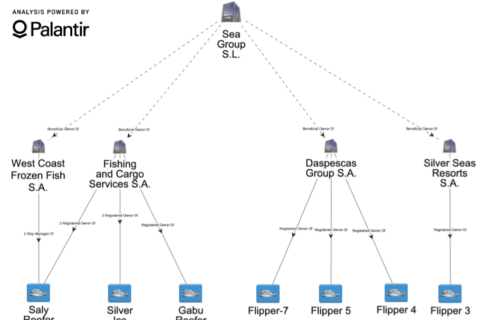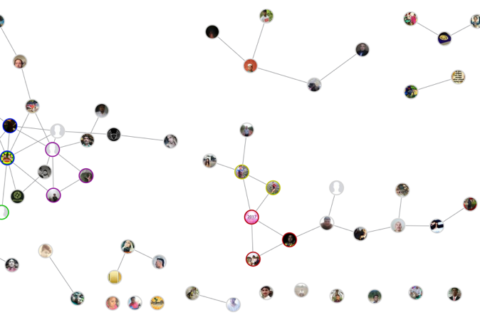Joint Analytical Cell Releases New Report On Widespread MMSI Spoofing Activity
A new report from the JAC analyzes a fleet of Chinese-linked distant-water squid fishing vessels that appear to have engaged in behavior consistent with attempts to conceal their identity by Maritime Mobile Service Identities (MMSI) spoofing — changing and sharing names over Automatic Identification System (AIS), as well as using multiple MMSIs, making it extremely challenging to monitor and enforce their activities. Following the identification of this behavior, which has been linked with illegal, unreported, and unregulated (IUU) fishing activities, the JAC engaged with China to better understand the nature and motivation of the behavior identified.
FOR IMMEDIATE RELEASE — Today, the Joint Analytical Cell (JAC) released the results of a collaborative analysis into a fleet of Chinese-linked distant-water squid fishing vessels displaying behavior that may indicate efforts to hide illegal, unreported, and unregulated (IUU) fishing activity.
In this newly-published Fisheries Intelligence Report, the JAC provides extensive analysis of a fleet of vessels known as the “150 Series,” named as such because each vessel’s reported MMSI numbers all start with the numbers one-five-zero. The first three digits of an MMSI number typically identifies the issuing country, but MMSIs in the 150 series are not assigned to any country and may therefore be used to hide illicit activity. The group of vessels in the 150 Series identified by the JAC have both engaged in repetitive MMSI spoofing practices and shared other identifiers in recent years. While this behavior alone does not constitute IUU fishing, the report highlights the geographic routes, ownership, and operational patterns of these vessels that often indicate potential illicit activity.
The JAC shared a copy of the draft report with the China Bureau of Fisheries to alert them to the behavior identified and to provide them with an opportunity to share their comments on the findings. Since this initial outreach, the China Overseas Fisheries Association has confirmed that on at least one occasion, a vessel reporting on the 150 Series used the identity of an authorized Chinese fishing vessel while operating in the Indian Ocean — rather than in the Atlantic/Pacific squid grounds, where they claimed to be. The China Overseas Fisheries Association has advised the JAC that an investigation into the vessel is underway.
While the JAC cannot make any claims as to the motivation for this activity, it is clear that the behavior in question presents significant challenges to the relevant authorities and enforcement agencies responsible for monitoring the fleet over geography and time. Consequently, this report concludes with a recommendation to consider every vessel identity linked to these operating practices as high risk and that appropriate inspection or investigation action be prioritized. The JAC specifically recommends that authorities should focus on confirming the identity of the vessel in question, including through verification of vessel documents and confirmation of the AIS transponders onboard.
###
About the JAC
The Joint Analytical Cell, or JAC, provides authorities with fisheries intelligence, data analysis and capacity building to help combat illegal, unreported and unregulated fishing. Founded by the International Monitoring, Control and Surveillance Network, Global Fishing Watch and TMT, the initiative’s members also include C4ADS and Skylight. By harnessing innovative technology and the complementary expertise of its collaborating organizations, the JAC fosters cooperation among State and non-State actors to build insights and capacity to help enhance fisheries management.
For media inquiries, please contact [email protected]. For more details about the Joint Analytical Cell, please contact [email protected].






